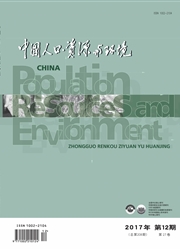

 中文摘要:
中文摘要:
比较优势是不同国家生产同种产品的机会成本差异。传统理论认为,形成比较优势的机会成本主要为生产成本,而“可持续性”是一种代际公共品,耗费“可持续性”要素的机会成本是代际成本,即现在使用某(些)要素所放弃的未来使用之可能带来的纯收益。因此,不同国家的可持续性差异体现为代际成本差异。“可持续性”是塑造一国比较优势的新要素。若中国对外贸易过度依靠当代所具有的劳动力价格低廉和环境规制政策宽松所塑造的劳动力比较优势和环境比较优势,从长期看是不可持续的。通过代际成本内在化,可逐步实现对外贸易发展的短期理性与长期理性的统一。进而言之,中国需要妥善处理贸易增长与各种稀缺要素消耗之间的关系,平衡贸易增长与可持续发展的关系,当今的贸易与未来的贸易需寻求某种总量和结构上的均衡。
 英文摘要:
英文摘要:
Comparative advantage is the difference of opportunity cost among different countries producing the same product. Traditional theories hold that the opportunity cost forming the comparative advantage is mainly production cost. "Sustainability" is a kind of inter- generational public goods, and the opportunity cost of sustainable attrition is inter-generational cost, i.e. the future potential net income abandoned when using some factors now. Therefore, sustainable diversity of different countries embodies discrepancy in inter-generational cost, and "sustainability" is a new factor shaping a country's comparative advantage. If China' s foreign trade excessively depends on comparative advantage of labor force and environment based on cheap labor force and loose environmental regulation policy, it is not sustainable in the long run. We can gradually achieve compatibility of the short-term rationality and the long-term one in the development of foreign trade through the internalization of inter-generational cost. Furthermore, China has to cope with the relationship between trade growth and the consumption of various scarce factors properly, balance the relationship between trade growth and sustainable development, and seek the equilibrium between the gross amount and structure of the present and future trade.
 同期刊论文项目
同期刊论文项目
 同项目期刊论文
同项目期刊论文
 期刊信息
期刊信息
